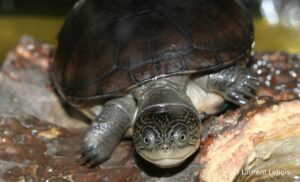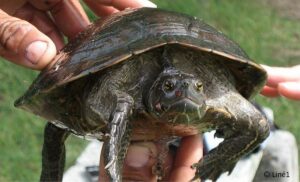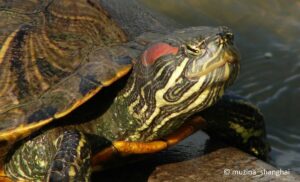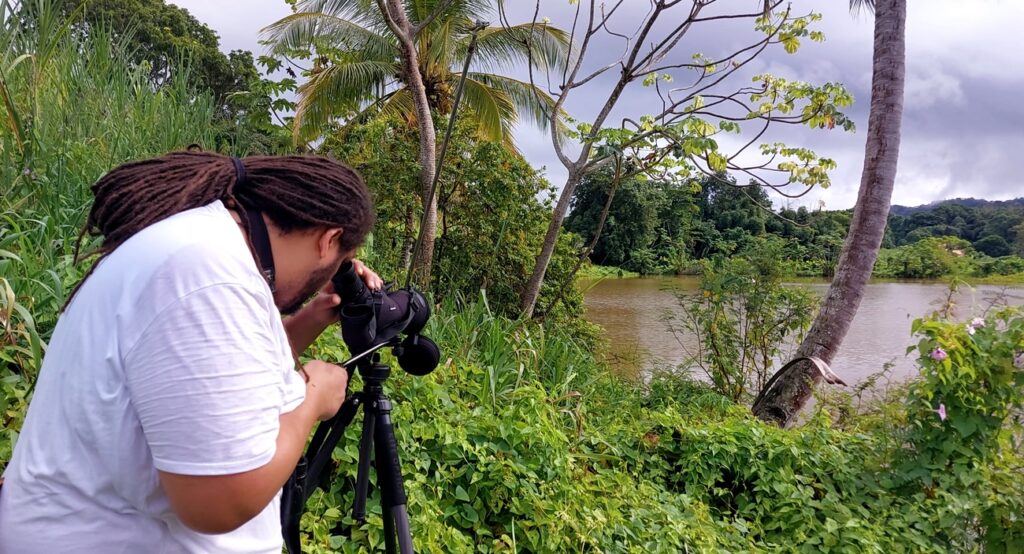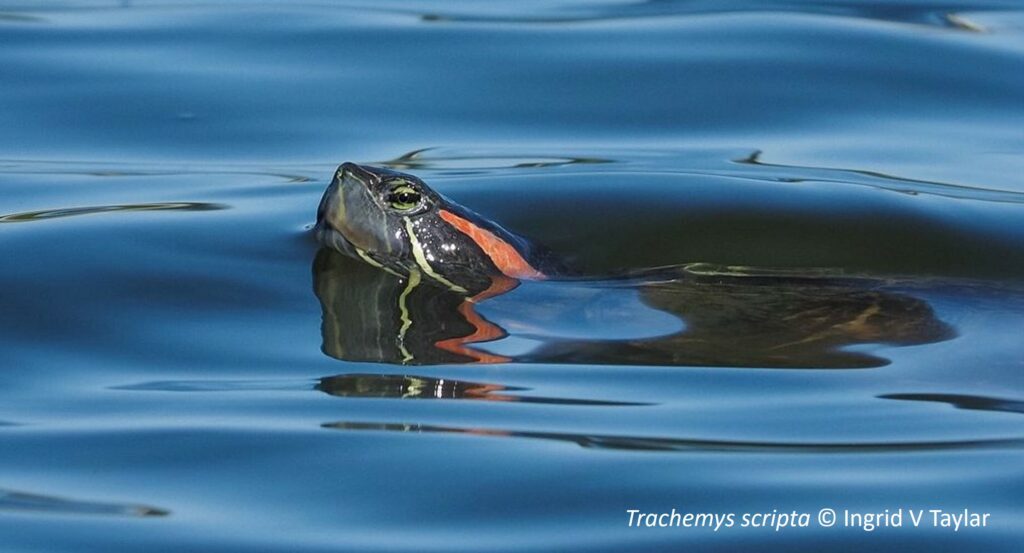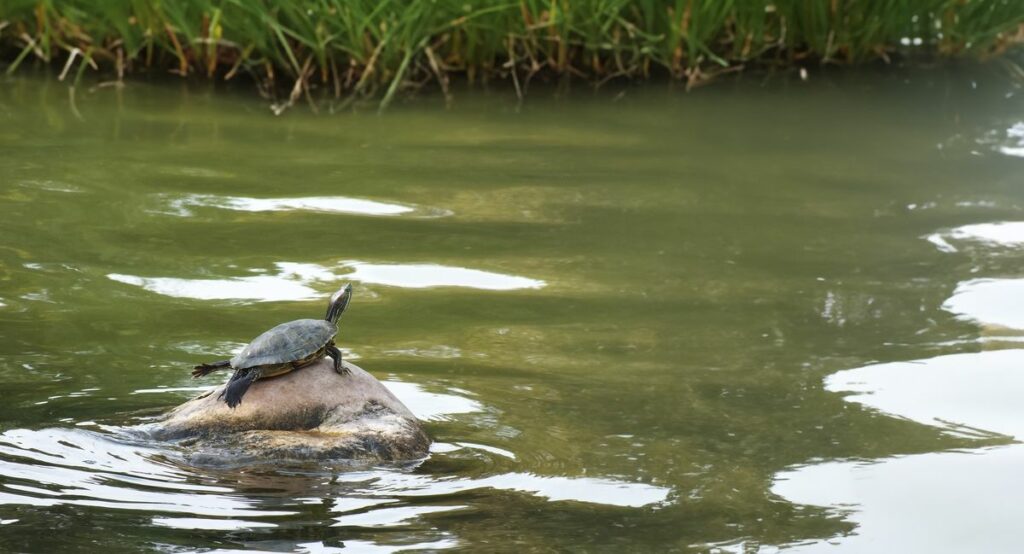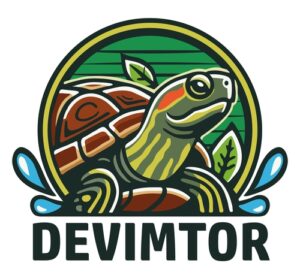 Full title: Demography and assessment of the impact of invasive alien freshwater turtles in the French West Indies - DEVIMTOR
Full title: Demography and assessment of the impact of invasive alien freshwater turtles in the French West Indies - DEVIMTOR
Aims: To study the demography and diet of three invasive exotic freshwater turtles.
Location: Guadeloupe and Martinique
Dates: 2024-2026
Summary: The aim of the project is to study three species of invasive freshwater turtles in Guadeloupe and Martinique: the African slider (Pelusios castaneus), the Antillean slider (Trachemys stejnegeri) and the Yellow-bellied slider turtle (Trachemys scripta). It is based on various techniques, such as the analysis of environmental DNA to estimate the spatial distribution of the species, genetic analyses of their diet, and the use of telemetry methods to collect data to assess the influence of various factors, particularly anthropogenic ones, on the spatial expansion of these turtle populations. This project is being carried out with the financial support of the Office français de la biodiversité (OFB), the Office de l'Eau (ODE) from Martinique and the Office de l'Eau (ODE) from Guadeloupe.
Species studied
The project is focusing on three species: the African slider (Pelusios castaneus), native to Africa, the Antillean slider (Trachemys stejnegeri), native to Puerto Rico, and the Yellow-bellied slider turtle (Trachemys scripta), originating from the United States of America and Mexico and listed among the 100 most invasive species in the world.
Click on the photos for more information on these species, or download a description file from a previous project on invasive alien reptiles:
News articles
Project team
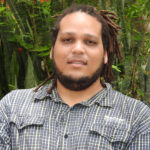
Christopher Cambrone

Mirella Morgene
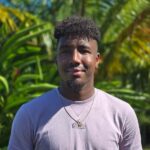
Jérémy Eudleur
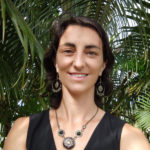
Elise Queslin

Sophie Labaude
Project partners
The DEVIMTOR project is carried out by the Caribaea Initiative association, in collaboration with Nathalie Duporges (a private consultancy, communications and technical & scientific support company based in Martinique) and UMR BOREA, a research laboratory at the Université des Antilles in Guadeloupe.

The project has received financial support from the Office français de la Biodiversité (OFB), among other research-action projects focusing on Invasive Alien Species, from the Office de l'Eau (ODE) from Martinique and from the Office de l'Eau (ODE) from Guadeloupe. The deployment of GPS tags in Martinique is made possible thanks to the financial support of the DEAL Martinique.


